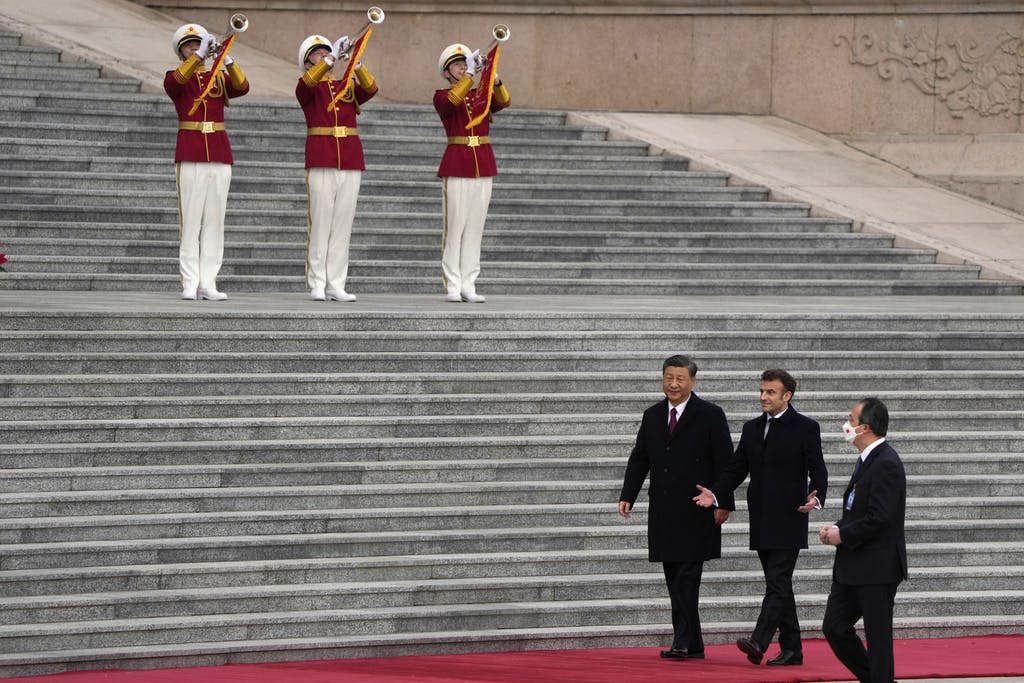Europe: The Disunited Front
Even the Financial Times’s editors grouse that President Macron’s idea of France as a “balancing power” in global politics is causing “unhelpful ambiguity.”

America’s alliance with Europe seems to be something less than a united front. No sooner did President Biden impose new technology trade limits on Communist China than — incroyable, mais vrai — President Macron fetches up at Beijing, following Chancellor Scholz’s visit, to strengthen trade ties with President Xi’s regime. It’s a troubling breach in what ought to be Western unity against a rising adversary.
Please check your email.
A verification code has been sent to
Didn't get a code? Click to resend.
To continue reading, please select:
Enter your email to read for FREE
Get 1 FREE article
Join the Sun for a PENNY A DAY
$0.01/day for 60 days
Cancel anytime
100% ad free experience
Unlimited article and commenting access
Full annual dues ($120) billed after 60 days

